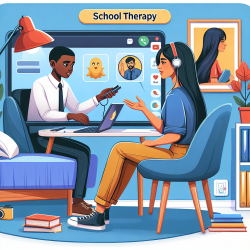Understanding the New Hampshire Special Education Process: A Simple Guide
Welcome to our easy-to-read guide on the New Hampshire Special Education process! Whether you're a parent, educator, or simply interested in learning more, this blog will provide you with a comprehensive overview of the essential steps and rights involved in the process.
1. Referral to Consider Special Education
The journey often begins with a referral. Anyone, including a parent, can refer a child for special education evaluation. It's a best practice for parents to make this referral in writing, including the date, and keep a copy for their records. If someone other than the parent makes the referral, the school must notify the parent in writing immediately.
2. Decision-Making Meeting (Disposition of Referral)
Within 15 business days of receiving a referral, the school must schedule an Individual Education Program (IEP) team meeting. This meeting, known as the "disposition of referral" meeting, includes the parent and determines if the child's needs can be met through regular education services or if further evaluation for special education is necessary. Parental permission is required before any evaluation can take place.
3. Evaluation and Eligibility Determination
After obtaining written parental consent, the school district evaluates the child to determine eligibility and identify educational needs. The evaluation process must be completed within 60 days for initial evaluations. For reevaluations, a 30-day extension can be agreed upon by parents and the school district. Parents receive copies of evaluation reports at least 5 days before the IEP team meeting where results will be discussed.
If parents disagree with the school’s evaluations, they may request an independent educational evaluation (IEE) at public expense or choose to pay for their own IEE.
4. Development of the Individualized Education Program (IEP)
Within 30 days of determining eligibility, the IEP team meets to develop the IEP. This document is reviewed and revised as necessary, at least annually, and must be in place at the start of each school year. Parents have 14 calendar days to sign the IEP, giving, refusing, or providing partial consent.
5. Determination of Educational Placement
After the IEP is signed, the IEP team determines the child's educational placement to implement the IEP. Placement options vary but must be in the child’s Least Restrictive Environment (LRE), meaning the child should be educated alongside nondisabled peers whenever possible.
6. Monitoring and Additional Parent Rights
- The IEP includes how the child’s progress towards annual goals will be measured and reported.
- Parents can request an IEP team meeting if they have concerns about their child’s progress.
- The IEP team must meet at least once a year to review and revise the IEP.
- A formal reevaluation occurs every three years unless agreed otherwise by parents and the school district.
7. Key Parent Rights
- Participate in all team meetings as an IEP team member.
- Request an IEP meeting and have it held within 21 days.
- Access their child’s educational records within 14 days.
- Receive understandable information and translation services if needed.
- File complaints or request mediation and due process hearings.
For more information, please follow this link.
For more in-depth information about the special education process, parent/educator partnerships, disability awareness, and other related topics, please contact the Parent Information Center at www.picnh.org, call (603) 224-7005 or (800) 947-7005, or email info@picnh.org.










